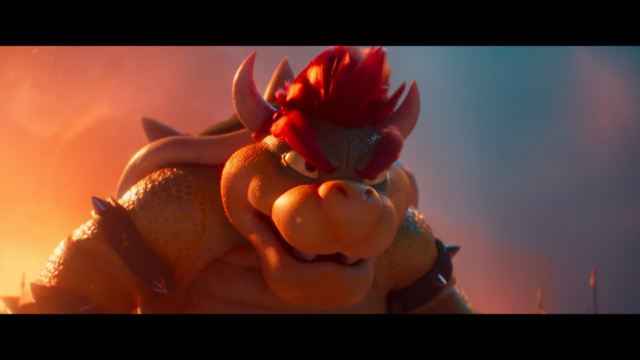When my 8-year-old daughter got home from school on Thursday, I was excited to show her the first trailer for the upcoming animated The Super Mario Bros. Movie. And while she would later express excitement at the sight of Bowser battling an army of penguins or Mario being confused about a field of giant mushrooms, her immediate reaction after watching the trailer was more negative:
“Mario’s voice sounds weird.”
This is not an uncommon reaction to the first public line-reading for the Chris Pratt-voiced Mario, judging by the overall tone of social media in the last 24 hours. It’s a reaction that seems to extend past the Internet snark zone, too; at least two parents I know in real life have told me that their kids expressed similar confusion about Mario’s movie voice.
But putting our collective finger on what exactly is “weird” about Pratt’s Mario performance requires a bit of examination into how the idea of what Mario is “supposed” to sound like developed in the first place, and whether Pratt’s performance can ruin what otherwise looks like a pretty solid movie.
Let the judging begin
To be fair, the only examples of Mario’s movie voice we have thus far are the two lines Pratt delivers in the trailer. Judging Pratt’s entire Mario performance on that basis is like judging an opera based on the first note.
That said, the sheer Pratt-iness of Mario’s first line in the trailer—”What is this place?”—is utterly distracting. As Ars’ Sam Machkovech put it yesterday, the line delivery “comes without any sort of exaggerated Italian accent, instead sounding like rote Chris Pratt.”
That delivery is more than a little ironic given that, back in June, Pratt told Variety that Mario’s voice in the movie would be “updated and unlike anything you’ve heard in the Mario World.” We suppose that’s technically true because we haven’t previously heard someone who sounds exactly like Chris Pratt in the “Mario World.” But still.

Pratt’s second line in the trailer—”Mushroom Kingdom, here we come.”—adds the subtlest hint of an additional Brooklyn-style inflection (“Heeeeah we cahm…”). It’s a line reading that has inspired countless social media comparisons to Linda Belcher from Bob’s Burgers, which is both fair and impossible to unhear. Even here, though, the voice sounds like Chris Pratt doing a vaguely New York-area accent, rather than an actor truly inhabiting a unique character.
Wah, whoo, wa-hoooo!
The difference is apparent when you compare Pratt’s performance to that of Jack Black as Bowser in the same trailer. Every line Black delivers rumbles with undertones of a guttural roar that feels entirely appropriate for the character. Beyond the trailer, you can see and hear the joy Black puts into this performance in a New York Comic-Con appearance Thursday.
Black has a bit of an advantage here, though, because Bowser’s voice isn’t that well defined in the public consciousness. Aside from some now-ancient Saturday morning cartoons, Bowser is very rarely heard delivering vocalized dialogue either in Mario games or supporting media.
Mario’s voice, on the other hand, has been defined for decades by Charles Martinet and his bubbly, enthusiastic, exaggerated faux-Italian accent. Even young children can pick up on this characterization: After calling Chris Pratt’s take on Mario “weird,” my daughter proceeded to do her best imitation of what Mario is supposed to sound like in the form of a 30-second montage of Martinet-inflected “Woohoos” and “It’s-a-me’s.”
Despite this, I’m not sure that Martinet would be the best choice to voice Mario for an entire movie (or that Pratt should just do a direct Martinet impression). Martinet’s Mario voice is tuned for maximum impact during the kind of short, high-energy sound bites that get repeated hundreds of times during a game. That’s great for accentuating individual player actions or important moments, but that over-the-top style might grate over the course of a movie full of extended monologue and dialogue from the famous plumber.
To get some idea of how this might be a problem, start with this video of Martinet ad-libbing as Wario at E3 1996. Now watch that video on loop for two hours.
While Martinet might be able to moderate his delivery for a new medium, I’m not sure it’s necessarily the best idea for him to try. At the same time, though, Martinet’s take on Mario has established itself deeply enough in the public consciousness that any new take on the role is going to bump up against it.
https://arstechnica.com/?p=1888112

